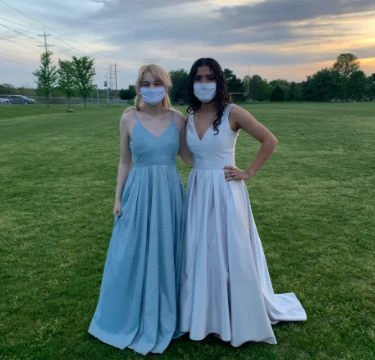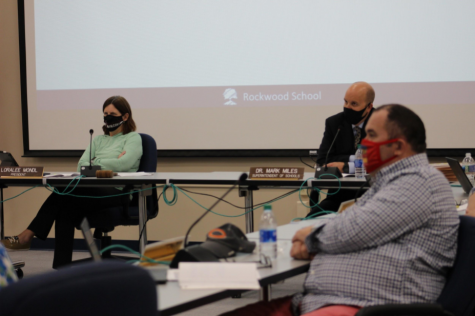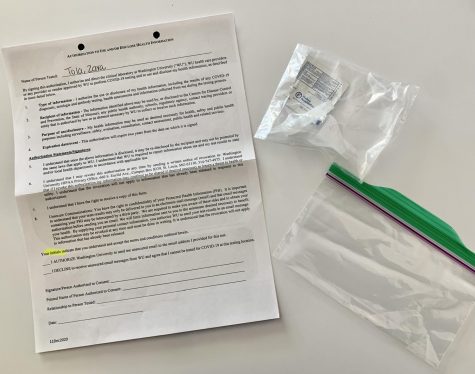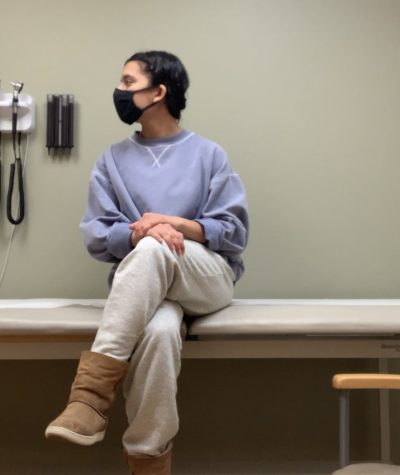Petition Circulates Throughout the District for Better Sex Education
Media by Zara Tola
Izabel Cockrum, junior, leads a discussion with students on their experiences with sex education in the RSD. Laura Dorris, junior, sits left of Cockrum.
Currently, a petition is being signed by students throughout the RSD in hopes of sparking a discussion and changes to the sex education curriculum offered to students in the health classes.
Izabel Cockrum, junior, has lead the movement at MHS to sign the petition in hopes of improving sex education for students who take health education.
“I think sex education in Rockwood and the people involved in it need to understand that people are going to have sex and they don’t know what they are doing,” Cockrum said. “They need to be informed of how to do that safely rather than just avoiding it at all costs.”
Cockrum and other students held a meeting on Nov. 7 to discuss what changes they want to be made to sex education and what they have personally experienced through RSD’s sex education curriculum.
“We’re trying to make it so abstinence isn’t an overwhelming majority of what is taught and that it’s just a component,” Cockrum said. “There are also genuine ways to have safe sex like contraceptives and teaching about STDs in a way that is not something that is scary and unknown.”
With the petition, Cockrum said she hopes RSD will alter it’s curriculum to go more in-depth about important topics in sex education so teens won’t just be left on their own to figure it out.
“It’s important to teach that if you don’t want to have sex, then you don’t have to have it,” Cockrum said. “Right now, with everything surrounding the ‘Me Too’ movement, just sticking to one explanation of what consent is, and not having all of these presumptions being taught, is really important.”
Laura Dorris, junior, is a student involved in the sex education movement with Cockrum. Dorris specifically wants to see sex education be beneficial to students of all sexual orientations.
“I think a big thing is the inclusivity of it,” Dorris said. “Being LGBT, misinformation or no information at all can be really harmful towards those students.”
At the meeting, many of the students agreed that the sex education they had been taught through RSD was not thorough in discussing contraceptives.
“I have never even heard the word condom in any of my middle school classes up to now, and that’s kind of sad that I had to learn about that from outside sources, when it should be taught to me in school,” Dorris said.
To Dorris, the subject of sex education is important, and she said it has been shied away from and taught to be scary.
“It can help students’ health because you see the higher teen pregnancy rates, and being a teenager that’s not exactly the best situation to put yourself in,” Dorris said. “In St. Louis, we have a very bad problem with STDs and STIs, and that affects your health for so long.”
I have never even heard the word condom in any of my middle school classes up to now, and that’s kind of sad that I had to learn about that from outside sources, when it should be taught to me in school.
— Laura Dorris
According to the CDC, those ages 15-24 account for about 50 percent of new STD cases.
Last year, there were 739 cases of gonorrhea, 1,449 cases of chlamydia and 42.4 cases of syphilis per 100,000 people living in St. Louis, according to the St. Louis Post-Dispatch.
Patrick Fine, content facilitator for RSD, said there will be changes going forward in the health education classes and that the district is open to students’ opinions on the topic as well.
“Missouri Law mandates abstinence education and any information given to students is medically and factually accurate,” Fine said. “We are currently reviewing our 6-12 grade Health Curriculum. We are moving to a skills-based approach.”
The committee is focusing on adding in concepts like how environmental factors influence health behaviors, how students can use interpersonal skills to avoid health risks and how students can advocate for personal, family and community health, among other skills-based concepts.
Joe Schoedel, health teacher, said in class they go into depth about types of contraception in their “Disease Prevention” unit, where they talk about the science behind sexually transmitted diseases.
When he first heard about the petition, Schoedel was surprised because he personally makes sure to include all of the types of contraception and STDs, in detail, including prevention and spread.
“We have a very specific slide on all of the types of contraception, how to keep from getting pregnant, how to keep from spreading diseases, and it talks about what the success rate is for each of those types of contraception,” Schoedel said.
Nevertheless, Schoedel does see how sex education might have been glossed over in the past because different teachers have different methods for teaching sex education, but he doesn’t see that as a problem for the future.
“It’s definitely a sticky subject that many teachers don’t want to talk about,” Schoedel said. “The only problem that I would see would be inconsistency. We have addressed this at MHS, and we do not have that here. We are all on the same page and are teaching the same things here.”
Your donation will support the student journalists of Marquette High School. Your contribution will allow us to purchase equipment and cover our annual website hosting costs. You may become a PATRON by making a donation at one of these levels: White/$30, Green/$50, Blue/$100. Patron names will be published in the print newsmagazine, on the website and once per quarter on our social media accounts.
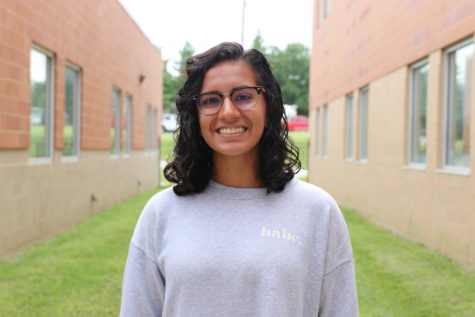
Zara Tola, senior, is copy editor for the Marquette Messenger. Zara can be seen frequently attending Board of Education meetings and community events for...








